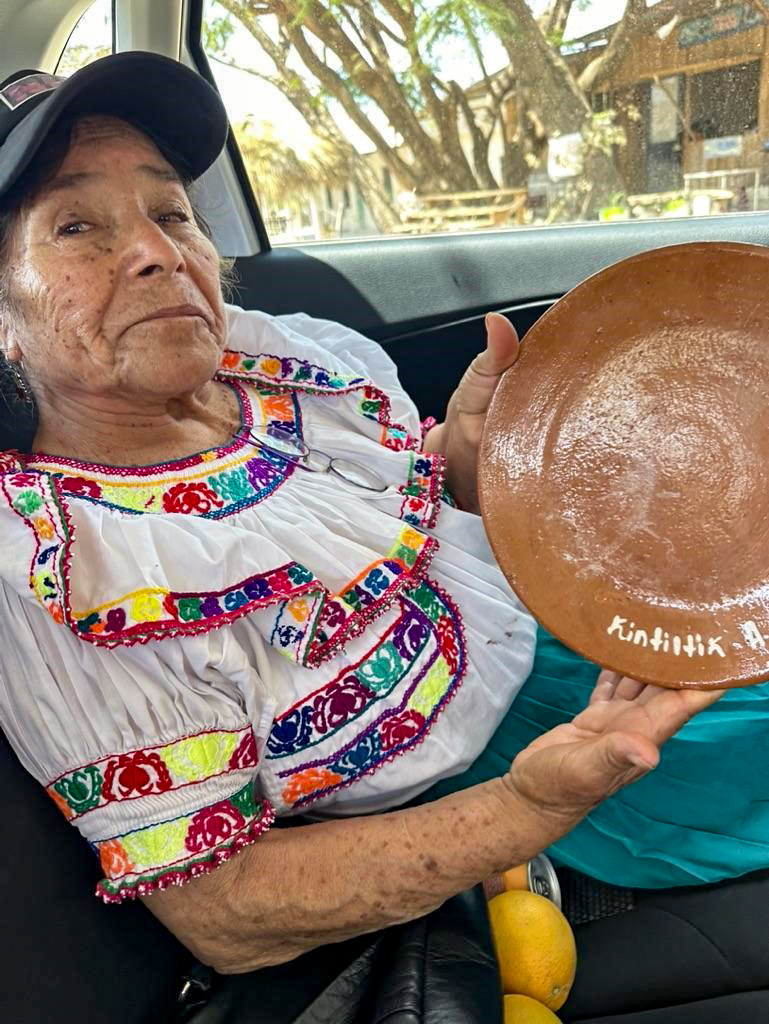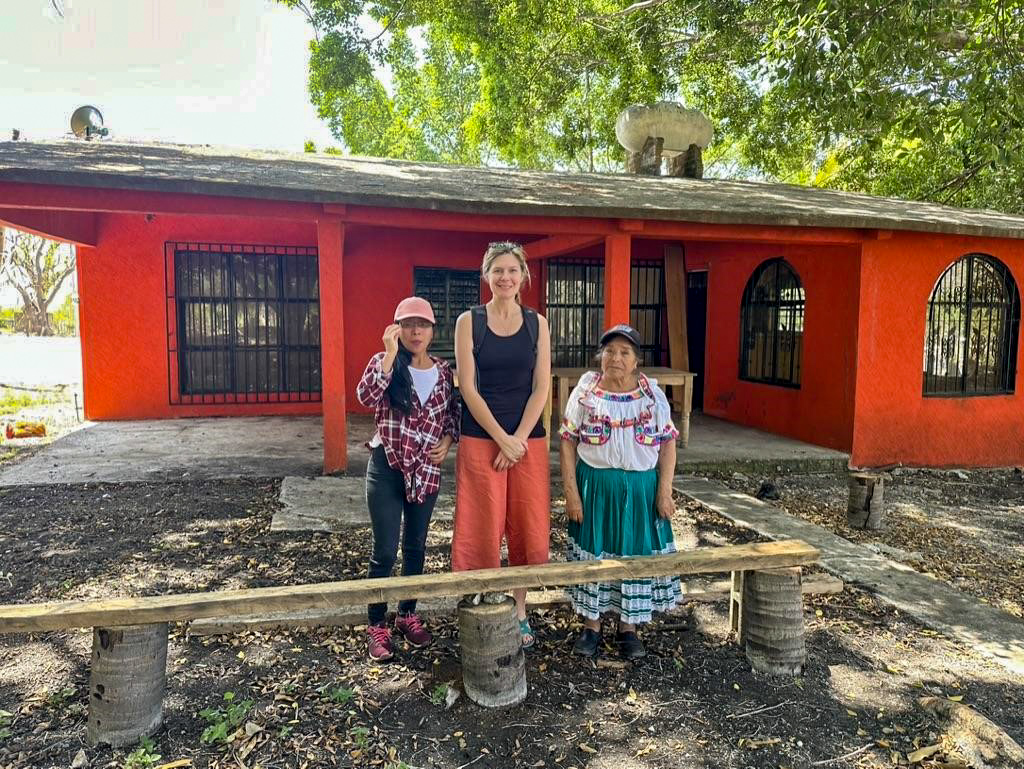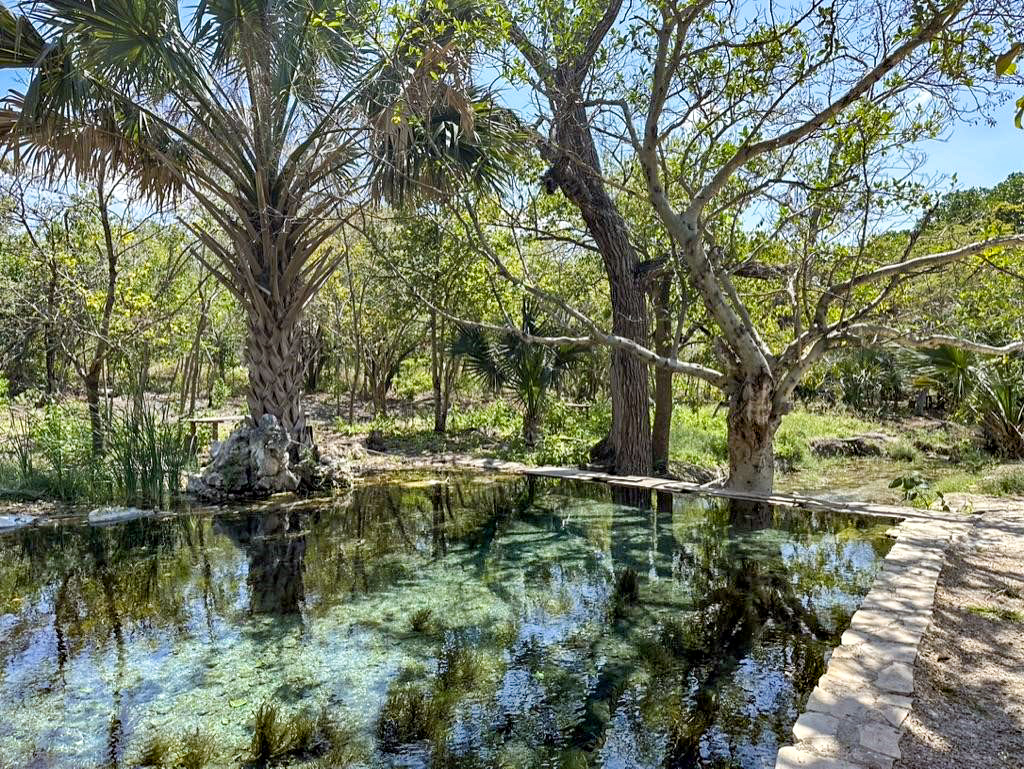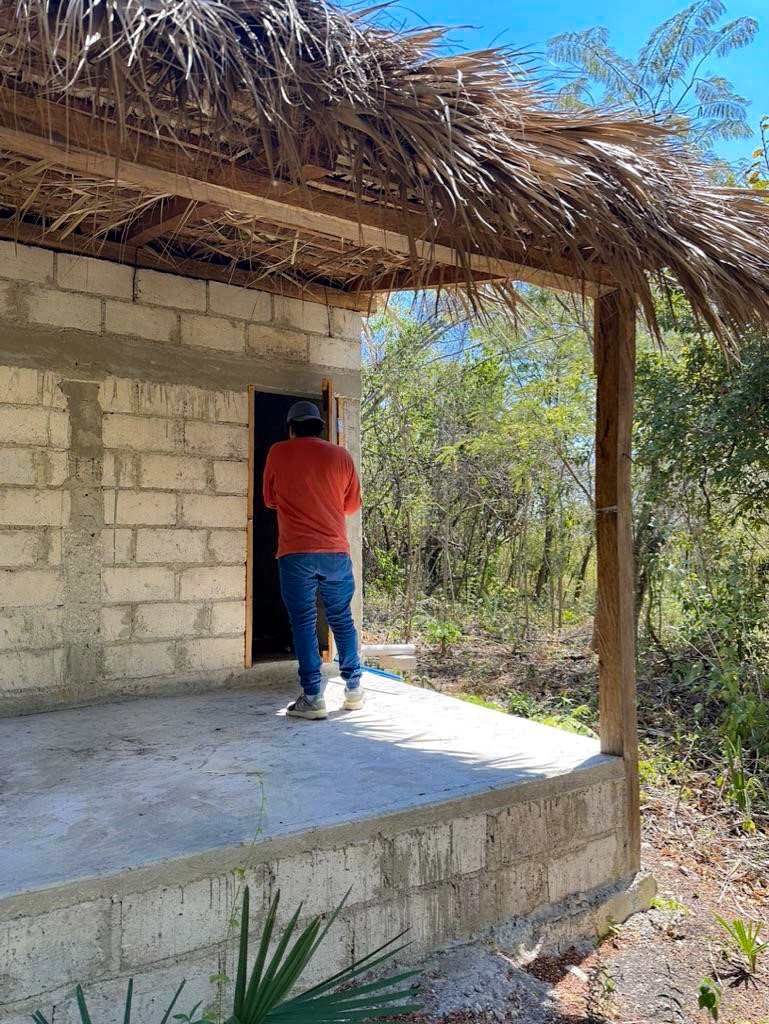By Kate Riley

The nonprofit Kintiltik (‘together, planting the seed’) was founded over 20 years ago by Delfina Aguilar Gómez, a Tojolabal visionary who was one of the first champions of the rights of Indigenous women in the southeast region of Chiapas, Mexico. Though Delfina did not learn to read and write until she was an adult, she is now the author of three books, and her nonprofit Kintiltik lives on through her son, Carlos García Robles, and the ITD Professional Fellow, Lucia Gomez.
One of Kintiltik’s strengths is its long-term commitment to inclusive decision-making and
community-led projects. As an example, they have been working for many years in the Indigenous Tojolabal community, 5 de febrero, which sits between the national parks, Parque Natural El Triunfo and the Montes Azules Bioreserve. This rural town collectively owns a community center, as well as a pristine ‘Ojo del Agua’ or freshwater pool.
When Kintiltik began supporting the community around sustainable management of their natural resources, the 5 of febrero did not formally recognize the voices of the women. With slow and determined patience, (and with so many of the men being absent due to migration), the women now are valued members of the community council, and even hold officer positions.


After this successful step of building an inclusive decision-making process, Kintiltik and the 5 of febrero community has begun to plan and implement sustainable ecotourism techniques including ecological bathrooms that will not contaminate the water pools. This site has been transformed from a place that was historically unsafe and trafficked, to a popular gathering spot for families.

Though migration to the north continues to deeply affect this rural community, this ecotourism project has been a source of hope, creativity, and movement-building. The Indigenous leaders of Kintiltik and 5 of febrero are committed to not only being the guardians of this special place, but sharing it with others in a way that is in alignment with their culture and values.
Reflecting on Kintiltik’s journey, we’re reminded that real sustainability comes from empowering communities, fostering inclusivity, and sharing a vision of living in harmony with nature. Together, we sow the seeds of transformation, nurturing a lasting heritage for the generations to come.
All opinions expressed by the program participants are their own and do not represent nor reflect official views from the Bureau of Educational and Cultural Affairs of the U.S. Department of State, or of the Institute for Training and Development, Inc.



